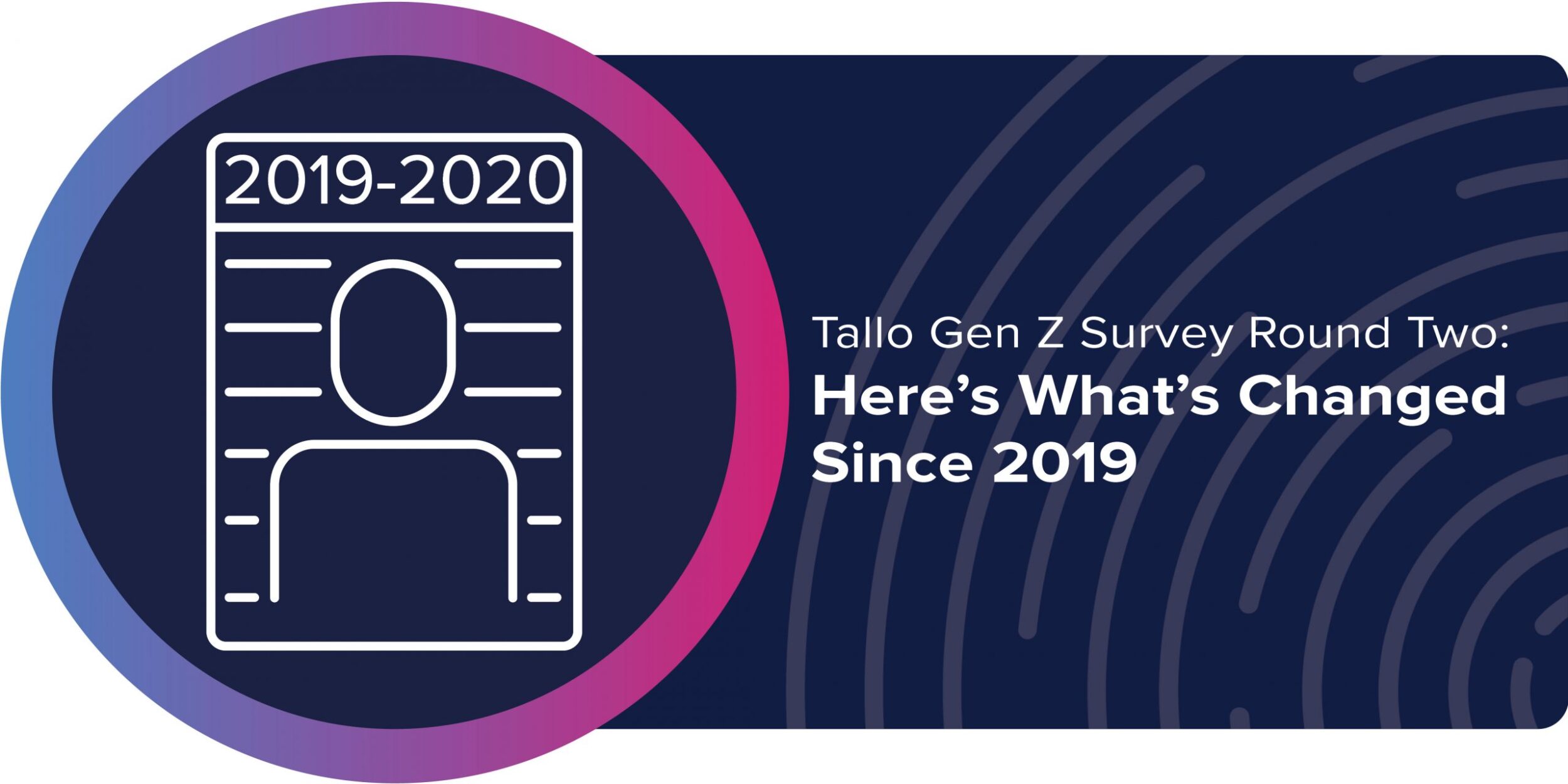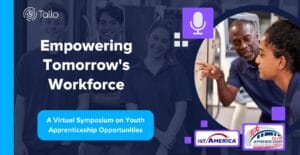In December of 2019, we released the results of our first Gen Z survey, compiling responses we received from hundreds of high school and college students regarding their thoughts on how they approach recruiting, and how they would like to be recruited. The survey included topics like personal and professional branding, communication preferences, and what Gen Z wants to see from potential employers. 2020 has been an eventful year (to put it mildly) and we knew that now was the time to go back out to our Gen Z community and ask how events like the COVID-19 pandemic and the increase of wide-reaching social movements, like Black Lives Matter, have impacted their perceptions and preferences for career recruitment.
What were the biggest changes we saw? In August 2020, we heard from nearly 10,000 students that networking, building a strong professional brand, and job stability are more important, while the geographic location of a job is less important. Gen Zers also shared their thoughts on remote work and the gig economy — read on to explore our findings!
More Important: Professional Networking
During our first Gen Z survey last December, we asked members of Gen Z how strongly they agreed with this statement: “It is important to establish connections with employers even if they don’t have an immediate job opening.” While 59% of all respondents “strongly agreed” at the end of 2019, that number increased drastically to 81% in August 2020. Unemployment in August 2020 was more than twice as high as it was in December 2019, and students are realizing the importance of growing their professional network earlier than ever as part of their job search.

More Important: Building a Professional Brand
Another steep change in Gen Z’s perception has to do with their willingness to build a professional brand for themselves, particularly amongst college students. When asked how strongly they agree with the statement: “I feel it is important to build a professional brand for myself online,” the percentage of college students who “strongly agreed” with that statement went from 34% in December 2019 to 53% in August 2020. As seen in the graph below, we also found that while 13% of college students disagreed with that statement last December, only 5% now disagree with that statement. This increased emphasis on marketing oneself professionally is likely indicative of an increased sense of urgency as companies continue to clamp down on hiring. Creating a strong professional brand is one way students are making themselves stand out from the crowd to potential employers.
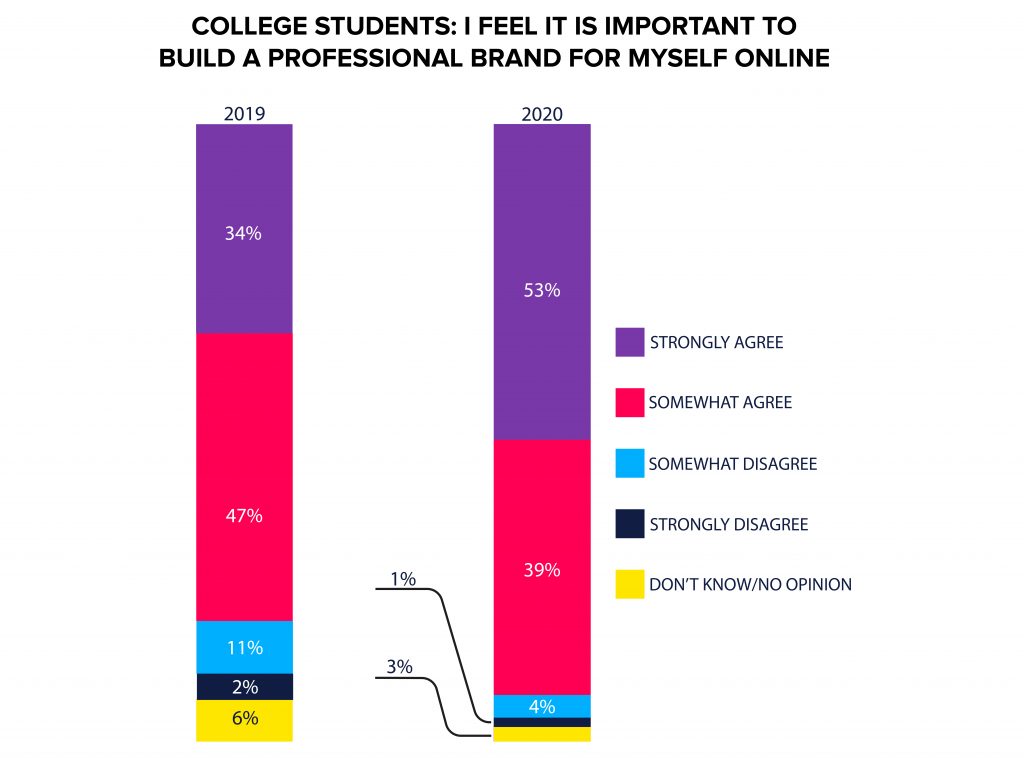
More Important: Job Stability
In both our December 2019 and our August 2020 surveys, we asked Gen Z how long they expect to stay at their first full-time job after high school. Their most recent responses show an increased willingness to stay at their first job a bit longer, as the percentage of Gen Zers who expect to stay at their first job for four or more years increased from 31% in 2019 to 35% in 2020. Similarly, the number of Gen Zers who anticipate spending less than two years at their first job decreased from 31% in December 2019 to 24% in August 2020. With the current challenges Gen Z is facing in securing a job, they’re looking to place a higher emphasis on keeping the job and securing overall job stability.
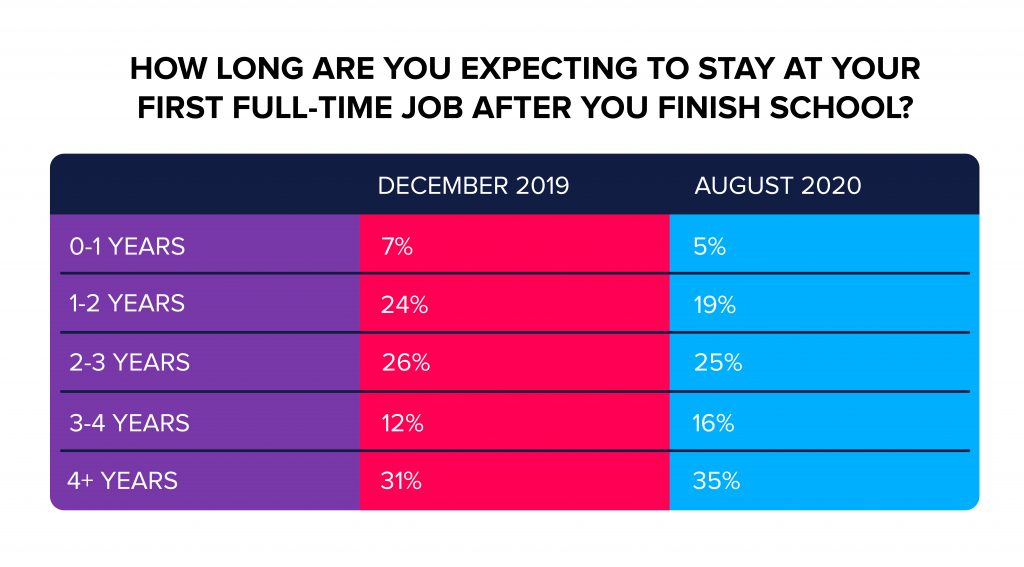
Less Important: Geographic Location
As members of Gen Z shared what has become more important for them during 2020, they’ve also shared details about what is now less important in their job search. In December 2019, 51% of college-attending respondents said geographic location was “very important” in considering a job opportunity. As the job market gets tighter and more companies are opening up remote work as an option, we saw the number of college students who feel that geographic location is “very important” drop to just 39%.
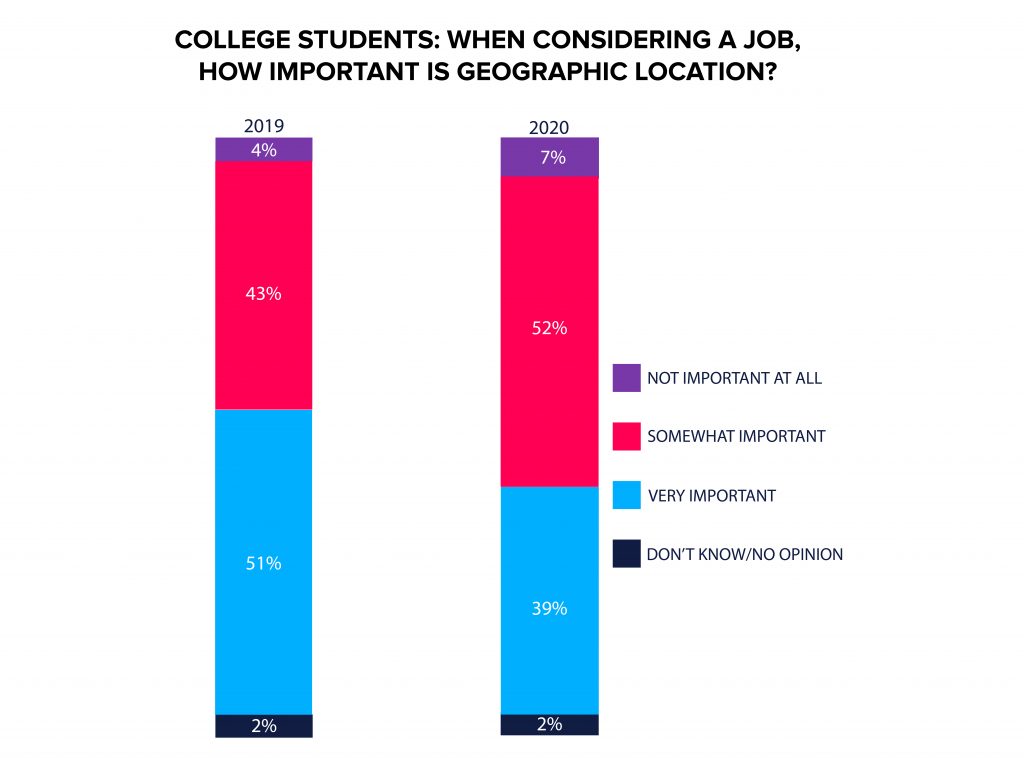
New Data: Gen Z + the Gig Economy
While some predict that the gig economy will expand through the 2020s, our recent survey shows that Gen Z may not be so keen on the concept. When asked about it in our August 2020 survey, just under 6% of Gen Z respondents said they were “very likely” to participate in the gig economy after graduation. As some states crack down on the gig economy, we may be seeing a shift back to gig work being a smaller portion of the economy.
We also found that the majority of Gen Z respondents (72%) would be interested in living and working in different places as a remote worker.
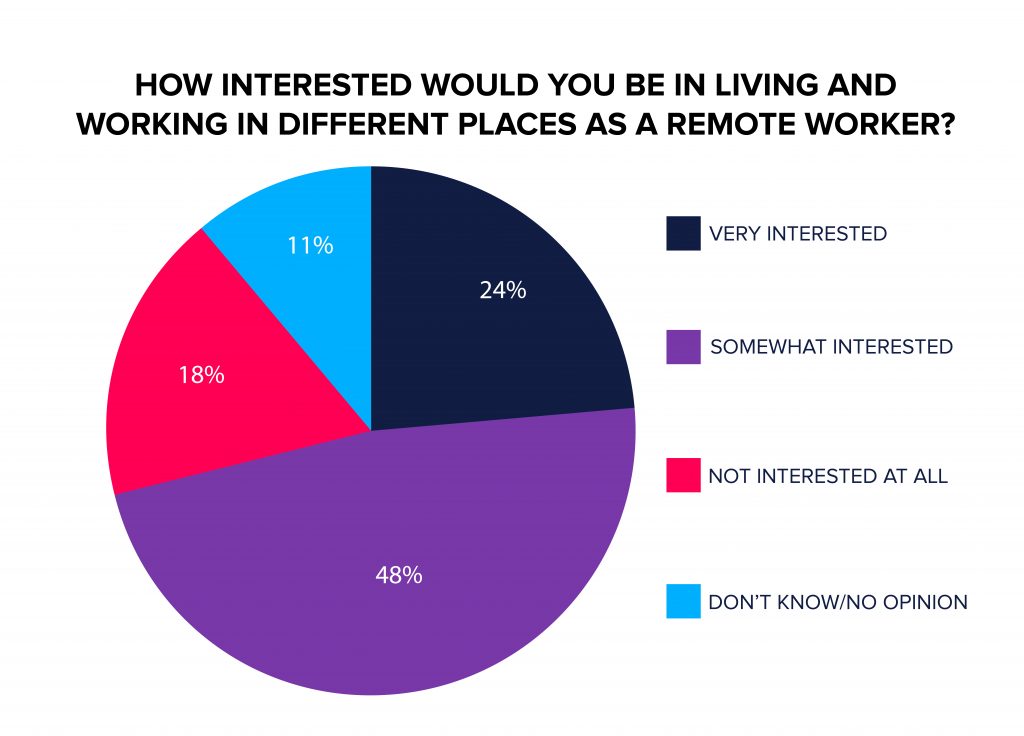
Members of Generation Z will soon fuel our future workforce, and in order to enable strong connections now, HR professionals and recruiters need to align their strategies with Gen Z’s preferences. The COVID-19 pandemic has hit Gen Z hard, and they’re realizing that now is the time to ramp up their job seeking efforts. Companies and organizations would be wise to pay attention, adjust their strategies, and start connections earlier in order to engage top talent.

